Text
8. #iamgay: China’s Social Media Influence
For our final week of digital communities, we are looking at the big one: China. With the fastest-growing online usage in the world and 513 million Internet users as of 2011 (Chiu, Lin & Silverman 2012, p. 1), China is obviously an extremely social world where stories published online have potential to gain huge momentum and possibly even achieve real social change. The example I’ll talk about today is one I initially noticed in my smartphone’s news app and one that struck a personal note for me. The next I heard of it was in a certain university presentation by a group of my classmates – thanks for the inspiration for my weekly blog post, by the way!
The story from April 2018 demonstrated the power of a hashtag after the dominant and popular social media platform Sina Weibo, the Chinese equivalent of twitter, declared they were ‘cleaning’ the site by removing content “with pornographic implications, promoting bloody violence, or related to homosexuality” (cited in The Guardian 2018). Sina Weibo explained the reasoning behind this was to encourage a more “sunny and harmonious community environment”. However, many LGBT users of the platform felt understandably upset and insulted at the idea of their sexual identity being categorised with pornography and bloody violence. Thus, the hashtags #iamgay and #iamgaynotapervert were born.
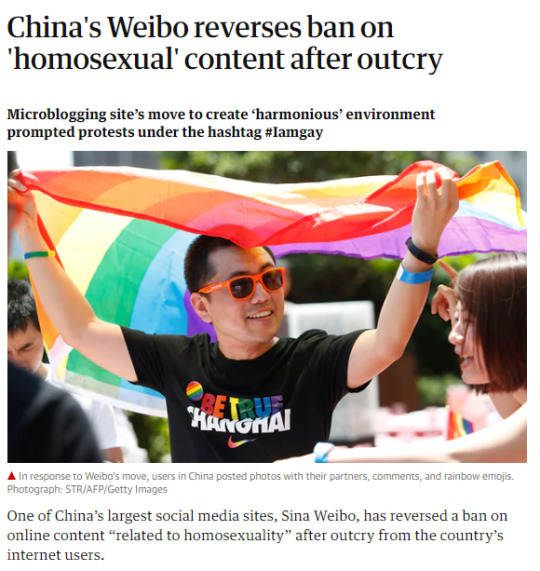
Thanks to the people Chiu, Lin and Silverman (2012, p. 5) call “opinionated users”, Weibo was then adorned with photos of gay couples, rainbow emojis, and comments in support of the LGBT community. The far reach of Weibo paired with China’s hugely prevalent online communities led to protests in the ‘real’ world to try and get the ban overturned.
The ban was fortunately overturned after only a short time, and The Guardian cites the growing general support for LGBT rights in China and changes in Chinese society as a factor in the success of the protests. The moral of this story here is to keep on fighting and to keep up the resistance. Even if this case has been described as a ‘baby step’ towards proper equality in China, it is a step nonetheless.
2 notes
·
View notes
Text
Hellblade: Senua’s Sacrifice
I think anyone with a mental illness will have a different experience playing hellblade than those without. Although I don’t share Senua’s particular illness (I have cptsd) I felt like someone took the pain I’ve felt and never been able to articulate into the right words and put it in a game.
For some that might cause a negative reaction. But for me that sort of exposed feeling was…good for me. I highly recommend this game to everyone.
282 notes
·
View notes
Photo
Hellblade: Senua’s Sacrifice (Ninja Theory 2017) is a really good overlap of our health and gaming weeks as it speaks to communities of people with psychiatric disorders. The development team thoroughly collaborated with sufferers of psychosis to create the game and the character of Senua. Hellblade, drawing upon Old Norse mythology, is an amazing game about a young woman with psychosis embarking on a viking quest into the depths of Hel to save the soul of her deceased lover. Players learn the distress and pain that Senua’s illness causes her, but we also learn to interact with her hallucinations to progress through the storyline. I think the game does a great job portraying the hardships of psychosis while also acknowledging Senua and other sufferers as unique, valuable and courageous people.

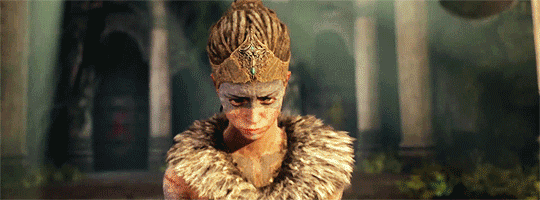

“I’ve often been struck by the sense that I get talking to people with psychosis that they do feel themselves on a quest. I mean, it may be a figurative one, and in some cases, people actually experience a genuine, physical quest. They’re looking for someone or something or some answer and with the feeling that if they can only achieve that, then there will be a release or a resolution to all of the things that are plaguing them.” (x)
#hellblade senua's sacrifice#digital communities#mental health#social gaming#gaming#games#hellblade#senua's sacrifice
830 notes
·
View notes
Photo
it IS a real historical period! :(
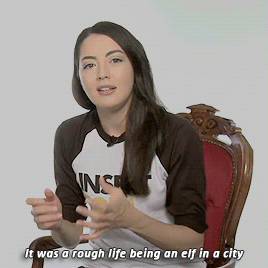
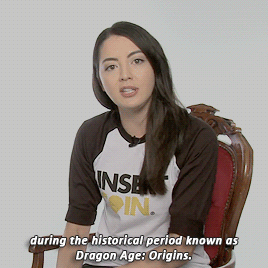
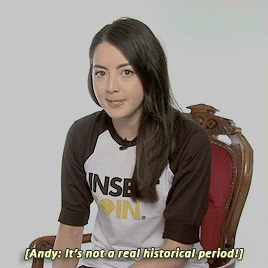
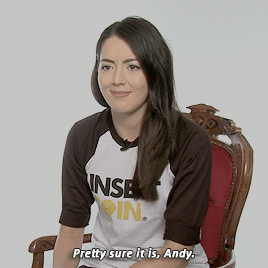
5K notes
·
View notes
Text
7. Play it, Sam: Social Gaming and the Importance of Community
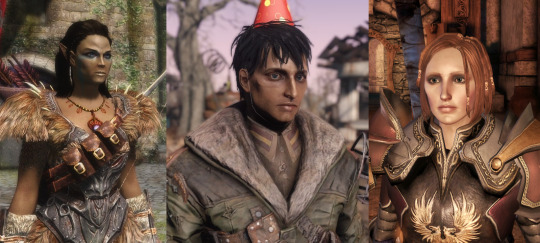
What if I told you these were all the same person? Then what if I told you that person was me and was very embarrassed about actually sharing her game characters with the Internet and therefore the world?
In reality, I’m a 21-year-old, 5’3”, 110 lb, Caucasian, human female with absolutely no fighting skills whatsoever. Yet none of those things stop me from creating video-game characters and playing as an elf, a male, or a warrior in a fantasy world. Now don’t get the wrong idea - this isn’t Second Life I’m talking about. This isn’t an expression of my ‘true self’ (except for the fact that I’m a gigantic nerd). I don’t identify on the inside as an elf, a male, or a warrior. I mainly play games for the escapism, which has been criticised as fake, “bogus and asocial” (Cooper 1995, p. 1), and ignoring who I really am. I know I’m supposed to be writing about the social gamer, but I don’t take my gaming seriously enough to be involved with the community element of it and I prefer to keep to myself when gaming, which I guess does make me more of an asocial gamer.
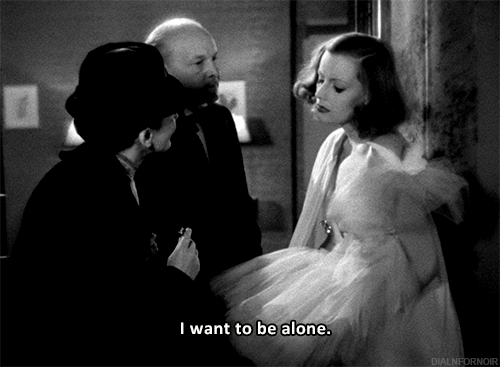
But games still do have communities of their own. For many people in gaming communities, character creation is an important opportunity to explore a “range of identities available to the individual” (Finn 2012, p. 183). As Cooper mentioned, critics of virtual gaming worlds see them as ways of ignoring the real world and our real selves. But what if a player’s character is the identity they have never been able to fully express in the real world? What if the character is a closer representation of the player’s true self because of the lack of restraints when building this persona? Let’s take the example of the third character above. Her native world is the Medieval-fantasy role-playing game (RPG), Dragon Age: Origins (Bioware 2009). What I’ve noticed in my time playing the Dragon Age series is how very passionate the community is. They have a lot of intense feelings about the game, especially here on tumblr, and especially in regards to their characters. ‘Dragon Age Confessions’ is a tumblr blog that allows users to send in their thoughts and personal stories from the series. A huge portion of ‘confessions’ sent in are about the emotional attachment players feel towards their own character or pre-existing characters in the games. Many tell stories about how playing Dragon Age helped them in real life in coming to terms with their sexual orientation, gender identity, religious identity, and so on. Once posted on the blog, these stories are shared with the community and usually receive much support. We also can’t ignore that some do receive hatred and insults. This is the Dragon Age community we’re talking about, after all. Though looking at the positives we can see how games gives us a community when we might not fit into any in the real world, and it gives us limitless identities to help discover new sides to our own.
It’s about time we dropped the idea that all gamers look like this:
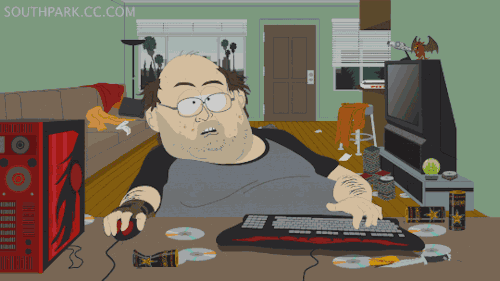
We aren’t all fat, lazy, basement-dwelling, loner slobs who never speak to other human beings. The point of RPGs is that you can look however you want to look. You can be whoever you want to be. You can do whatever you want to do. After spending a week in the real world it’s sort of nice to enter a whole new environment and experience things I’d otherwise never get to experience. And if that’s escapism, why does it matter? Anyway I’ve gotta go drink some magic potions and slay a dragon now, bye guys.
#mda20009#social gaming#gaming#digital communities#post 7#week 10#identity#dragon age#dragon age origins#bioware#skyrim#fallout 4
1 note
·
View note
Link
My group’s presentation on Social Gaming.
0 notes
Text
6. Mental Health and the Internet
In this post I’m taking a break from memes and gifs and facetious humour. Instead I’ll be writing about something more serious and personal. A warning for anyone sensitive to such topics, this is a story of depression and an eating disorder.
Seven years ago, in year 10, I developed anorexia nervosa. It wasn’t for a very long time because thankfully my mum was quick to pick up on it and took me to get help. I wasn’t even overweight when it began, but I decided anyway that was too fat and I should lose weight.
I started doing the typical things. I woke up every morning and calculated my food schedule for the day. 300 calories; 5 grapes for breakfast, a slice of bread for lunch, no dinner because “I’m tired and not hungry and I think I’ll just go to bed, thanks :)”, and so on. I hurt myself when I got angry. I burst out crying when I looked in the mirror because I thought I was so ugly I didn’t deserve to be alive. I started exercising much more. I became so bitter with my mum because she wanted me to eat half a bagel before we left for school. And yes, I threw away the lunches she made for me. This is one of the worst parts of it all, looking back; the guilt I feel for treating those close to me so horribly when they were trying to help me.
During all this, I discovered two particular and overlapping digital communities called ‘Pro-Ana’ and ‘Pro-Mia’ – websites and forums dedicated to encouraging and living with anorexia and bulimia. These aren’t websites to help people overcome eating disorders, they actively encourage eating disorders. These are incredibly disturbing communities of people, mainly teenage girls, who proudly share photos of their emaciated flesh; who congratulate each other on becoming severely underweight; who share tips and tricks on how to lose more weight and hide an eating disorder from friends and family; who don’t see themselves as having a mental illness but rather as living by a lifestyle. What’s more, I didn’t discover these sites from some ‘7:30 Report’ story or a wholesome, inspirational talk at school. I found them all on my own. I never participated or contributed but I did read the forums, looking for information, taking the advice of the users. Honestly I can’t remember thinking at the time if I knew how wrong it was or if I thought it was helpful information. I certainly never felt part of the community. I guess it’s lucky I’m so introverted and didn’t get sucked into that community. It’s lucky I have parents who love and care for me more than anything in the world.
As for my mental state, while I don’t think I ever fully recovered and I still get occasional bouts of self-hate and I’m still not 100% (who really is), I’m a hell of a lot better than I used to be.
#mda20009#digital communities#post 6#week 9#public health#health#mental health#depression#depression tw#eating disorder tw#anorexia tw
0 notes
Text
5. We Are Number One but it’s an Academic Blog Post About a Meme and a Crowdsourcing Case Study
For those not familiar with the 2016 meme referenced in the title of this post, ‘We Are Number One’ is a song from the Icelandic educational children’s TV series, LazyTown. Performing the song is actor Stefán Karl Stefánsson in the role of the now famous character, Robbie Rotten. The catchy and repetitive tune of the song plus the farcical actions and choreography in the song’s episode gained much love from Internet users. A large portion of this love came from YouTube. Filmmakers and bored uni students began creating their best, craziest and weirdest edits of We Are Number One. See below for just a small handful of examples. Note: ‘About 44,200,000 results’.
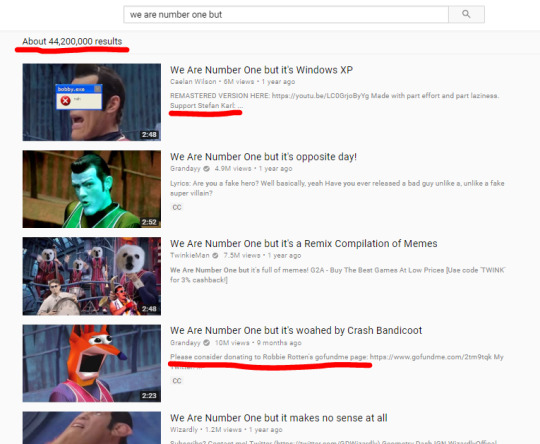

So what does this have to do with my university class? Well, this meme is one of my favourite examples of crowdfunding. Ford writes about crowdsourcing in the context of Ushahidi, an online crowdsourcing platform letting users around the world contribute their knowledge and information in times of political crisis. Ford describes crowdsourcing as having “the opportunity to lower the barriers to expression and ultimately help and support ordinary people in times of crisis” (2012, p. 39). Crowdfunding is a branch of crowdsourcing, where instead of sourcing anything from money to information, crowdfunding specifically gathers money/financial aid.
What’s interesting is that the We Are Number One meme never began as a campaign to raise money. But that’s what it turned into after Stefán was diagnosed with cancer. A GoFundMe.com page (another dominant crowdfunding platform along with Kickstarter.com) was created to help gather funds for his treatment. This fortuitously coincided with the hugely popular meme. Internet users banded together, raising both awareness and money by flooding YouTube with their versions of the song and leaving a link in video descriptions to the GoFundMe page. In a fantastic video essay summarising the story of the meme, Bobby Burns (2016) reports that over $110,000 was raised on Stefán’s GoFundMe. The original cast of the song’s music video even responded to the meme and the outpouring of support with an interview and live version of the song performed in a studio in Reykjavík, Iceland. You thought the YouTube comment section was absolute filth? Then let these few here be a pleasant surprise.

Cancer itself is somewhat of a meme on the Internet, in that twisted, morbid, Internet-humour kind of way. It’s the go-to response for any user when they see something they believe to be lacking in quality. “You are cancer”, “this meme is cancer”, “that video gave me cancer.” Comments like these are liberally spread around the online space. Surely you’ve seen some before. YouTuber iDubbbz certainly contributed to the widespread online use of the term ‘cancer’. But We Are Number One is the exception. It’s a special meme. As Bobby Burns says, “it is the only meme that has helped cure someone’s cancer, instead of causing it.”
This bizarre yet humbling saga recently reached a sad stage. Stefán’s cancer was cured around the time of the meme’s height in popularity, but Metro.co.uk reported on April 5th 2018 that the cancer has returned and is inoperable. Stefán has chosen to delete most of his social media to now spend as much time as he can with his friends and family.
Stefán, I wish you and your loved ones all the best and thank you for all the laughter and joy you bring to people’s lives. Robbie Rotten may be a number one villain, but you’re a number one hero.
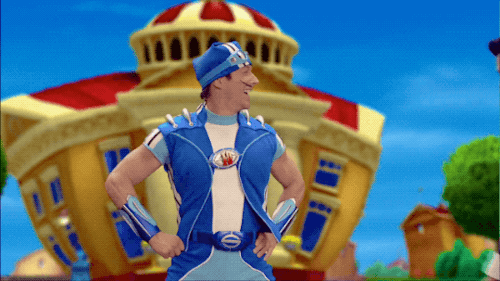
#mda20009#digital communities#crowdsourcing#crowdfunding#post 5#week 8#we are number one#stefan karl stefansson#lazytown#robbie rotten#bobby burns#meme#memes
0 notes
Text
4. TROLL IN THE DUNGEON!

...Thought you ought to know!
(Yes, this is a late post). Trolling can suck. But for something so widespread that happens so often, some people out there must find something enjoyable and appealing about being a troll. What is it that thing? And why? It’s almost too easy to say, ‘well it’s because they’re a bad and mean person’. The psych student in me can’t accept that as a deep enough answer. Anthony McCosker (2016) rightly points out that there are various categories of ‘being mean to people online’. Trolls, cyberbullies, haters, flamers; they all operate in different ways and for different reasons. Studies about narcissism and sadistic personalities would probably say something about the feeling of power and control that cyberbullies gain from their behaviours. Maybe it’s the feeling of being able to get away with something so horrid without ever suffering repercussions and without ever being found out. You can be anyone on the Internet. Anonymous usernames, no usernames at all, or virtual avatars bearing absolutely no resemblance to oneself are used by trolls and cyberbullies as masks behind which to hide. In the context of online games, players’ real identities can be entirely thrown away in substitute for their game character (Kwak, Blackburn & Han 2015).
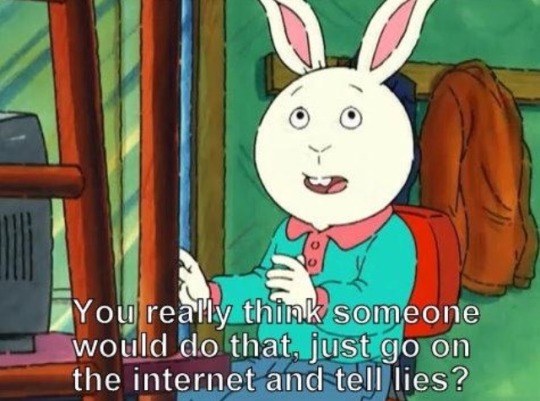
The face of YouTube, PewDiePie, recently had some words to say about hateful online comments and how those with an online or high-profile presence can possibly find value in these comments with regards to ego. At the 6:29 mark of ‘The Hate Finally Got To Me..’, he gives us four categories of hate comments. 1. Plain and simple hate comments for the sake of being hateful, 2. The first one but with ignorance added; people being judgmental on a topic where they probably don’t have all the information, 3. Hate disguised as constructive criticism but really it’s just criticism, and finally, 4. The actual constructive criticism and the only category that contains potential value.
Love him or hate him (personally I just find him a really interesting figure in the online world), PewDiePie is someone with quite a bit of experience in this field and knows a thing or two about navigating a way through criticism. At 9:41 in the video, he says, “I think that the fact that we have adopted the idea that all hate comments are just inherently bad, is actually really harmful”. The overall message is that we need to stop running and hiding so often from hate comments. Some are certainly worthy of being completely ignored, while others might do well to be listened to. He also importantly says that it isn’t easy. With more and more sides of the Internet spawning and expanding, it probably isn’t going to get easier.
2 notes
·
View notes
Photo
couldn't resist reblogging
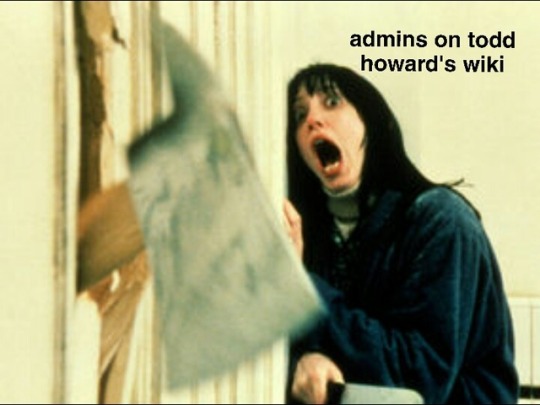
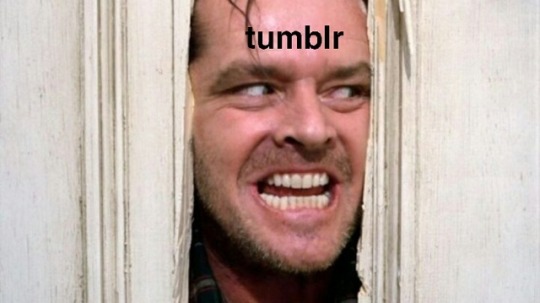
7K notes
·
View notes
Photo
wholesome trolling??
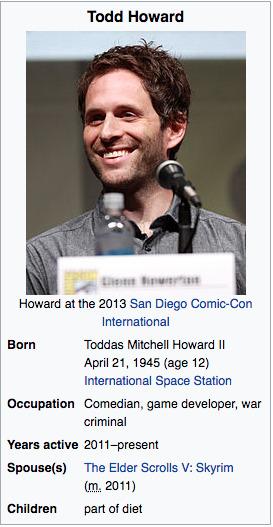
94K notes
·
View notes
Text
I’ve really been enjoying the trolling of Todd Howard’s Wikipedia page lately.
So I went to check and see if Todd Howard’s wiki was destroyed yet and

Y’all are passionate, I’ll give you that
83K notes
·
View notes
Photo
@ people who give activists shit
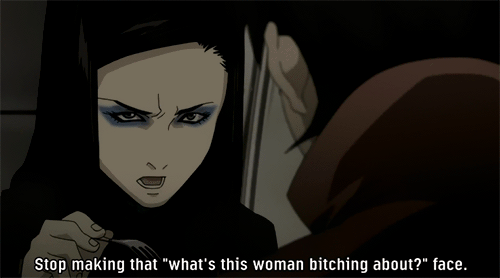
7K notes
·
View notes
Text
3. Of all the protests, in all the world: Changes in activism over time.
I watched Casablanca again the other night. One of the reasons for it being (probably) an all-time favourite film of mine is the portrayal of the desperation but also the courage and solidarity of those trying to flee Nazi Europe and enter the US. The one classic scene that unarguably epitomises this courage and solidarity is the café recital of Les Marseillais (here’s a link for you poor devils who’ve never seen Casablanca).
It made me recall all this talk about activism and protest in the digital age. The primary force of activism these days seems to be social media. But, as time goes by, the way we protest and call for change obviously evolves.
Look back for a moment. Just imagine how the Second World War would have played out with the addition of modern-day social media. Would Rick’s Café Americain have a Facebook page helping refugees organise protests and plan meet-ups at the famous gin joint, reflecting how Sigal and Biddle (2015) describe the process? Would we see Yvonne sporting a French Flag filter on her profile picture? (I do so shudder at the thought of such a great character being reduced to this cringey kind of ‘slacktivism’) How many views would the video of the French anthem gain after Ilsa films it on her smartphone and uploads it to YouTube?

On that note, Casablanca gives us a good example of what Michael Warner (2002) describes as ‘counterpublics’. The singing refugees drowning out the chanting of Nazi officers deliberately show their “conflict with the norms and contexts of their cultural environment” (p. 63).
So what’s my point after all this? Unlike governmental regimes, some things never change. Counterpublics are definitely still out there. In Egypt and the Middle East, the US, France, Korea, Australia, and of course the rest of the world too. Social media and digital technology have been known, from time to time, to start revolutions and overthrow governments. But also don’t forget what people in previous ages achieved without that technology. And be thankful for what we have.

0 notes
Photo
Isn’t politics silly?
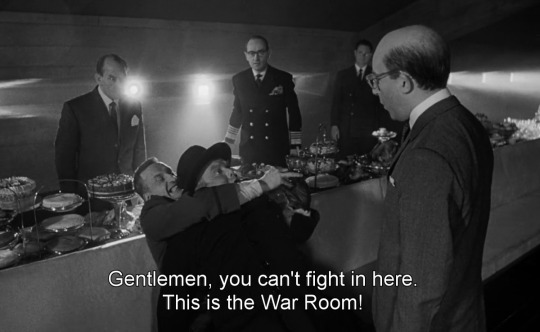
Dr. Strangelove or: How I Learned to Stop Worrying and Love the Bomb (1964)
#politics#dr strangelove#stanley kubrick#dr strangelove: or how i learned to stop worrying and love the bomb
1K notes
·
View notes
Text
2. How I Learned to Stop Worrying and Love Politics.
Well, sort of. I’ve learned to love political commentary. Via the means of comedy and sites like YouTube, the non-politically-inclined such as myself can now get their fix of news and current affairs without being bored to tears. I don’t follow politicians on social media but I do follow people who follow politicians – people who are more ‘in the know’ than myself. Particularly, I like to follow commentators from the middle ground. I value and appreciate unbiased commentary (while nothing is really truly ‘unbiased’, I guess I mean those who don’t sit too far left or right on the political spectrum). I don’t like the idea of being forced heavily swayed by the media into a specific socio-political agenda. I want to decide for myself what I think is right or wrong and do so regardless of the political labels into which my opinions might be categorised.
In a nutshell, I’m more interested in listening to what Axel Bruns describes as ‘produsers’; citizen journalists; online participants (Lutz, Hoffmann & Meckel, 2014); members of participatory cultures (Jenkins, 2006). I already mentioned YouTube because of the remarkable way it allows any person with Internet access to express their thoughts in a verbal and creative manner. Video format lets YouTubers utilise vocal and facial expression, filmmaking techniques, digital editing software and graphics to emphasise their arguments and the theme of their individual ‘channels’. Generally, this is more than we, for the longest time, have been able to say for text-based social media platforms. YouTube channels like The Rubin Report, Roaming Millennial, Shoe0nHead and EazyOnMe use their online space to speak, from the left and right, on current socio-political issues.
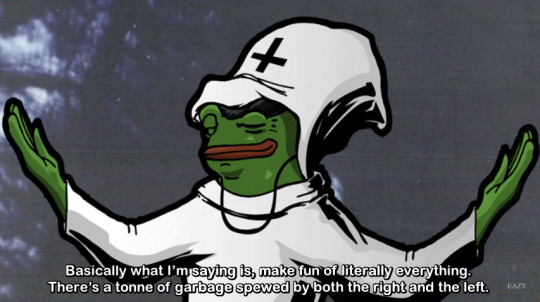
And so the majority of the political news I receive is "documented, debated and mentioned...by the campaigns and those who follow them" (Enli, 2017, p. 51), rather than large media outlets and corporations.
Of course, with being able to choose my subscriptions so particularly, there is always the risk of getting stuck in an ‘echo chamber’. This is the situation of receiving and being exposed to information solely from people with similar views and opinions. The problem then is potentially never allowing your mind to be broadened and liberated by the world of different viewpoints out there. I guess my own paradoxical way of avoiding the echo chamber is to stay subscribed to commentators who speak for and against both left and right issues. I’ll end this with a wonderful example of the echo chamber explained by comedian Bill Burr (transcript from TBS late-night talk-show Conan):
CONAN: Are you following the protests?
BILL: Only because my wife watched the women's rally.
CONAN: Which was very inspiring.
BILL: Yeah for like 10 minutes and then it was just like 100,000 people in the rain agreeing with each other. ‘Are you ready to -- yes! I said are you ready? YES! For the love of god, we're all on the same page here. Can we go inside?’
*(EazyOnMe screencap source video here)
#mda20009#digital communities#post 2#week 5#conan#conan o brien#bill burr#the rubin report#roaming millennial#shoe0nhead#eazyonme#politics#social media#youtube
1 note
·
View note
